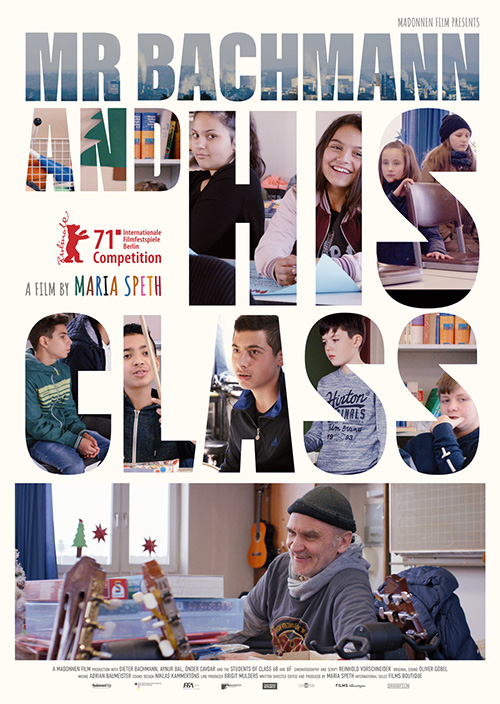18. MDAG: Klasa Pana Bachmanna
Mr Bachmann and His Class
18. MDAG: Klasa Pana Bachmanna
Opis filmu
Wybrane festiwale i nagrody / Selected festivals and awards: 2021 – MFF Berlinale: Srebrny Niedźwiedź – Nagroda Jury / Berlinale IFF: Silver Bear – Jury Prize
Filmowy portret wyjątkowego nauczyciela – pana Bachmanna i jego pracy z uczniami. Nie-konwencjonalne metody pedagoga zderzają się ze skomplikowaną społeczną i kulturalną sytu-acją małego niemieckiego miasteczka. Głównym zadaniem nauczyciela jest zapewnienie bez-pieczeństwa i poczucia „bycia u siebie” dzieciom emigrantów, którzy przeważają w tamtejszej społeczności. Uczniowie z jego klasy pochodzą z dwunastu krajów i wielu z nich ma kłopoty z językiem niemieckim. Dla Bachmanna to ostatni rok pracy, a mimo to inspiruje podopiecznych do poszukiwania swoich pasji. Widzimy, jak poprzez grę na instrumentach, rzeźbę, zaintere-sowanie kulturą krajów, z których dzieci pochodzą, uczy tolerancji, dając klasie poczucie sen-su. Oglądając jego pracę i reakcje dzieci dochodzimy do wniosku, że jeśli tylko każdy uczeń miałby kreatywnego i dojrzałego emocjonalnie nauczyciela, konflikty rozwiązywałaby zwykła dyskusja, a świat z piosenki Johna Lennona „Imagine” byłby możliwy. Na naszych oczach odbywa się subtelny, ale spektakularny proces twórczej edukacji, przekonujący o jej ważności i cudach, które może uczynić.
„Mr Bachmann and His Class” is an intimate documentary portraying the bond between an elementary school teacher and his students. His unconventional methods clash with the com-plex social and cultural realities of the provincial German industrial town they live in. Stadtallendorf has a complex history of both excluding and integrating foreigners. Genial teacher Dieter Bachmann offers his pupils the key to at least feeling as if they are at home. Aged between twelve and fourteen, these pupils come from twelve different nations; some have not quite mastered the German language. On the brink of retirement, Bachmann is eager to inspire these citizens-in-the-making with a sense of curiosity for a wide range of crafts, subjects, cultures and opinions. Watching this absorbing, sensitive documentary, one is overwhelmed with the realisation that, if only all children were blessed with such emotionally intelligent, ev-er-patient educators, conflict would be mitigated via discussion and John Lennon’s “Imagine” could be our reality. Those who, like filmmaker Maria Speth and her cinematographer Rein-hold Vorschneider, are able to recognise and highlight so beautifully not only the importance of education but also what a quietly spectacular process it can be, are heroes in their own right, too.













